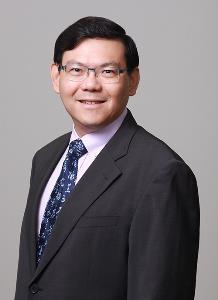Among the older generations, what happens is that people would complete their education, get a job, then stay in their jobs till they retire.
But with digital technology rapidly disrupting the business and job landscapes, we don't see that happening anymore. Jobs are being made redundant, and at the same time, new opportunities are being created. This means that job changes are happening more regularly now - and people need to further their education to maintain their skillsets and employability.
A lot of discussions around Singapore's Smart Nation push tend to focus on the technologies. However, as Vivian Balakrishnan, Minister-in-charge of the Smart Nation initiative, said, "The top priority for the Smart Nation (initiative) has to be jobs, jobs, jobs."
 But it is important to remember that "Smart Nation" is a catch-all term. "It doesn't only refer to the new buzzword technologies, such as Artificial Intelligence (AI) or analytics," said Dr. Leong Mun Kew, Deputy Director of NUS-ISS. "Smart Nation encapsulates a very significant change in mindset - including the ability to take risks and a strong willingness to try."
But it is important to remember that "Smart Nation" is a catch-all term. "It doesn't only refer to the new buzzword technologies, such as Artificial Intelligence (AI) or analytics," said Dr. Leong Mun Kew, Deputy Director of NUS-ISS. "Smart Nation encapsulates a very significant change in mindset - including the ability to take risks and a strong willingness to try."
Continuing education, therefore, has to cater to evolving needs of the industries and workers. A thoughtful response to the shifting economical and societal trends is idea of "stackable credentials".
What are "stackable credentials"?
Simply put, a stackable credential is one that can be accumulated over time, and certificates earned can be "stacked" or reused much later to fulfil the requirements of more advanced programmes. The underlying goal of stackable credentials is to streamline education for full-time professionals. By positioning skills certifications as the basic unit, and removing duplication of courses, the model helps to save on time and money.
This means that full-time professionals who attend short-term courses are able to work towards a degree in the long term, without having to take an extended period of time off work.
A focus on skills
The essence of this education model is a shift in the focus from qualifications to skills.
"Everything starts from skills. You might not need an entire qualification to do a job - you just need to understand the basics, try your hand at it, gain experience, and get better as you go along," explained Mun Kew. For example, a scuba diver doesn't need to be certified as a professional scuba diver before going on a trip. "He just needs to know how to scuba dive - and survive. But on the other hand, if he wanted to teach scuba diving, then a qualification would come in useful."
It is also not just about skills you have, or learn today. "The future is about the skills that you will need as you progress in your job," said Mun Kew. With the Smart Nation push on problem-solving skills and rapid advancements in technologies, it is not practical to "just take a course and expect to be able to magically do something. "The kind of skills required to build a Smart Nation - and work in one - are not easy to learn, and requires more than just taking courses.
"Reflection and practice are necessary in a learning process. As you learn a new skill, and as you transit from one course to another that is deeper and more advanced, you need to think about how these skills fit into your day-to-day work. The crucial aspect of the learning process is not just the content that is being taught in class, but should include how the learner applies and encodes it in his own context," stressed Mun Kew.
"Or else, it's akin to someone who has read all the theories on mountain climbing, but never climbed the actual mountain. He will never be able to fully understand what it is like to climb a mountain."
The future of continuing education
Stackable programmes are one of the ways to address the skills gap in Singapore. As Mr. Lim Swee Say, Minister of Manpower, said earlier this year, "Should Singapore be hit by higher unemployment, it will be because of a shortage of skills and not a lack of jobs."
Therefore, "stacking" shouldn't be the starting point. "Stackability doesn't exist on its own. You need to start with acquiring the skills that you actually need for your job, then when you need to, stack the certificates to a qualification," said Mun Kew. "What we wouldn't want to encourage, is people stacking skills just for the paper chase. Ultimately, the point is to get people thinking about the skills they need, and going out to acquire them."
The future of continuing education, is one in which the individual takes up the responsibility to seek the skills they need in order to succeed.
"It's about upgrading yourself on a constant basis. This should go beyond just getting better at something you have been doing for the past 20 years," Mun Kew said in conclusion. "After all, chances are that what you have been doing for the past 20 years might be made redundant with the dawn of the Smart Nation."
For more information on the NUS-ISS Stackable Programmes, click here